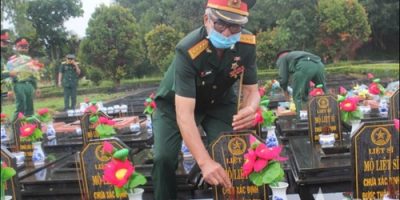February 4, 2025 (PORT SUDAN) – International donors, the UN, Sudan’s warring parties, and their allies must act immediately to prevent further avoidable deaths from malnutrition in Sudan, as the already catastrophic situation is expected to worsen this year, Médecins Sans Frontières (MSF) warned on Monday.
Half of Sudan’s population faces high levels of acute food insecurity (24.6 million people), including 8.5 million facing an emergency or famine-like situation, according to the latest Integrated Food Security Phase Classification (IPC) report.
“Despite this new wake-up call, robust humanitarian and diplomatic mobilization to act on aid deliveries has fallen far short of the needs,” said Stephane Doyon, MSF operations manager. “To provide only those in the most extreme situation with monthly food rations, 2,500 aid trucks per month would be required, whereas only about 1,150 crossed into Darfur between August and December.”
MSF has released data showing alarming rates of malnutrition in multiple locations, both at the height of Sudan’s lean season last year and as recently as December 2024. The conflict-driven malnutrition crisis has been exacerbated by the continued obstruction of aid by both of Sudan’s warring parties and the inaction of the UN and aid system in Darfur. With the seasonal hunger gap in May, decisive action must be taken now.
“Parts of Sudan are difficult to work in. But it is certainly possible, and this is what humanitarian organizations and the UN are supposed to do,” said Marcella Kraay, MSF emergency coordinator, speaking from Nyala, South Darfur state. “In places that are easier to access, as well as in the hardest-to-reach areas like North Darfur, options like air routes remain unexplored. The failure to act is a choice, and it’s killing people.”
The malnutrition crisis has been acknowledged for some time, with the UN warning in October that “never in history have so many people faced starvation and famine as in Sudan today.”
Moving supplies will become even more difficult during the upcoming rainy and lean season when flooded dirt roads become impassable. A wide-scale humanitarian response must be launched now, including drastically increasing available funding and logistical capacities, securing food pipelines, and pre-positioning food stocks in Chad and neighbouring countries.
MSF calls for UN agencies, international organizations, donor countries, and governments with leverage to pursue all options, including air routes, to complement and even replace road access where necessary.
Bureaucratic requirements from the warring parties have long been an obstacle to international organizations’ ability to reach and provide services to people. Rather than reacting to critical needs promptly, permissions to respond are either delayed or denied altogether by the warring parties. This impeded MSF’s work in South Darfur, with aid trucks stuck in Chad awaiting movement permits from the Rapid Support Forces (RSF). A food distribution in South Darfur was also recently postponed as MSF was refused the necessary travel permits.
Warring parties must grant unhindered access for humanitarian organizations. Access must be defined by lifesaving aid reaching people who need it, not by announcements celebrating piecemeal measures that fall far short. MSF calls for the warring parties, their allies, and influential states to use their leverage to ease the obstacles that are causing deaths and suffering.
MSF has provided data from different locations demonstrating the depth of the malnutrition crisis. In North Darfur, where an RSF siege on its capital, El Fasher, is starving people and depriving them of lifesaving assistance, MSF teams screened over 9,500 children under five in Tawila locality in December 2024, finding a global acute malnutrition rate of 35.5%, with 7% suffering from severe acute malnutrition.
Last September, 34% of the 29,300 children screened by MSF during a vaccination campaign in Zamzam camp suffered from acute malnutrition. Since early December, repeated shelling has made it impossible for MSF teams to conduct further assessments in the camp and has likely worsened malnutrition levels.
MSF teams also see concerning rates of malnutrition outside of Darfur, in areas where displaced people have sought shelter or closer to the conflict. In Omdurman, Khartoum state, a conflict zone under the control of the Sudanese Armed Forces, MSF conducted a nutritional screening during a vaccination campaign for children in October 2024, finding 7.1% of children screened were severely acutely malnourished.
MSF data also reveals that malnutrition is not only an issue for people near the frontlines but also in more stable cities like Nyala, the capital of South Darfur. In October 2024, 23% of children under five screened at MSF-supported facilities in Nyala and nearby locations suffered from severe acute malnutrition. In two MSF-supported facilities, 26% of pregnant and breastfeeding women seeking care were acutely malnourished. With WFP food distributions lacking, MSF launched a targeted food distribution in South Darfur in December 2024, providing two months’ food to about 30,000 people.3
Zahra Abdullah, 25, received food for herself and her son at the Al Salam displacement camp outside of Nyala. “This is not the first war I have experienced, but it is definitely the most devastating to my life,” she said. “The living conditions here are harsh, and everything is a daily struggle. The aid we receive has somewhat improved our situation. At least now, we finally have a meal in the morning. But even so, the suffering never ends. It starts with finding clean water to drink, continues with trying to provide enough food, and ends with finding a place to sleep. Sometimes I sit alone and think: is this the life I will live forever?”
For millions like Zahra, the time to act is now to prevent the situation from becoming even more dire. MSF will continue to do what it can, but the scale is well beyond the organization’s capacity. A massive response is needed now to prevent more death and starvation; timeliness is a matter of survival, not political expediency.














